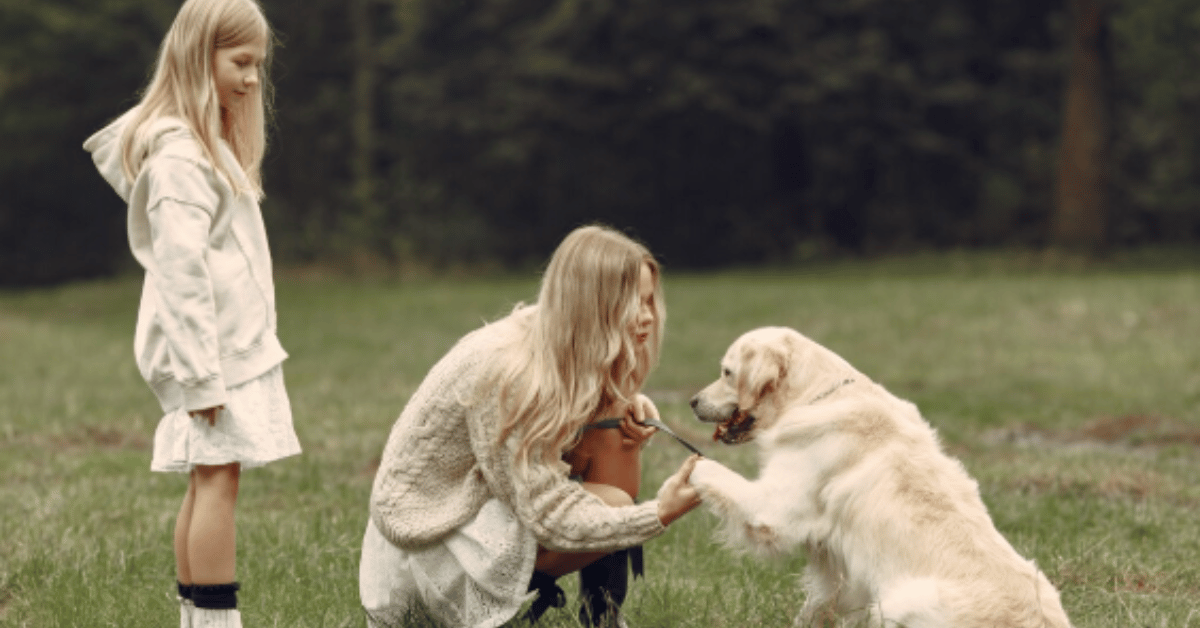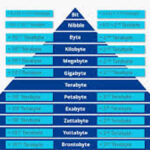The mini golden retriever is a breed that has quickly captured the hearts of dog lovers worldwide. Many searchers looking for information about this dog want to know whether it truly exists as a separate breed, how it differs from the traditional golden retriever, and whether it makes a good pet for families, singles, or retirees. Within the first glance, the term itself generates curiosity: is a mini golden retriever simply a smaller golden retriever, or is it a mix that mimics the beloved golden’s temperament and appearance? The clear answer is that the mini golden retriever is a selectively bred, smaller version of the standard golden retriever, often created by mixing with cocker spaniels or poodles. This mix results in a dog that retains the friendly personality of the golden while being more manageable in size. Owners are drawn to them not just for their adorable looks, but also for their intelligence, loyalty, and trainability. In this article, we will explore every detail about the mini golden retriever, from history and genetics to health care, training, and lifestyle needs. Readers will find clarity on myths versus facts, alongside practical advice to determine whether this remarkable companion is the right addition to their lives.
Origins of the Mini Golden Retriever
The mini golden retriever was first intentionally bred by enthusiasts who wanted a smaller version of the golden retriever without sacrificing temperament. Traditional goldens are medium-to-large dogs, often weighing 55 to 75 pounds, which can make them challenging for those with smaller living spaces. To meet this demand, breeders began mixing golden retrievers with smaller breeds like cocker spaniels and miniature poodles. The goal was to achieve a hybrid dog with the golden’s temperament but a more compact build. This deliberate crossbreeding process took time, as early attempts often produced unpredictable results. Over the years, however, consistency improved, and mini golden retrievers began resembling a stable variety. “The idea was never to replace the golden retriever,” one breeder noted, “but to create an option for those who loved the breed but could not manage its size.” Today, the mini golden retriever is recognized more as a designer dog than a purebred, yet it has carved out a distinct reputation among dog lovers.
Physical Characteristics and Size
Mini golden retrievers typically range between 20 and 45 pounds, significantly smaller than their standard counterparts. Their height usually falls between 12 and 20 inches at the shoulder. Coat colors mimic those of the golden retriever, spanning from light cream to deep golden shades, and their fur retains the soft, wavy texture that makes grooming both a joy and a responsibility. Their eyes carry the same expressive warmth, while their body proportions tend to be slightly more compact, reflecting the influence of smaller breeds in their lineage. Because of selective breeding, not all minis look identical; some lean closer to golden retrievers, while others show subtle features of cocker spaniels or poodles. Regardless of these differences, the essence of the breed is clear: they are designed to embody the golden’s beauty and charm in a size that is easier for apartment living and for owners who prefer smaller dogs.
Temperament and Personality
Perhaps the most defining feature of the mini golden retriever is its temperament. These dogs are affectionate, intelligent, and remarkably social. Known for their loyalty, they thrive in environments where they can interact regularly with their human companions. Much like their larger relatives, they are eager to please, making training relatively straightforward. Their sociable nature means they rarely exhibit aggression, though they may become anxious if left alone for long periods. Owners often describe them as “forever puppies” because their smaller size paired with a playful attitude gives them an enduring youthful charm. They interact well with children, making them an ideal family dog. They also adapt smoothly to multi-pet households, generally coexisting peacefully with cats or other dogs. As one owner put it, “Owning a mini golden feels like living with joy itself, condensed into a smaller body.”
Training and Intelligence
Mini golden retrievers inherit the intelligence of their golden lineage, often ranking high in learning new commands and problem-solving. Early socialization is crucial, as it helps them adapt to various environments, people, and animals. Training should focus on positive reinforcement, using treats, praise, and play to encourage good behavior. These dogs respond poorly to harsh methods, which may damage their sensitive temperament. Many mini goldens excel in agility courses, obedience competitions, and even therapy dog roles, thanks to their patience and ability to bond with humans. They are also quick learners when it comes to house training, though consistency is key. One striking advantage of their smaller size is that physical training requirements are more manageable than with larger retrievers, allowing even elderly owners to engage in their care.
Health and Lifespan
Mini golden retrievers generally live between 12 and 15 years, often outliving standard goldens due to their mixed genetics. However, like all breeds, they are prone to certain health conditions. Common concerns include hip dysplasia, heart conditions, ear infections, and eye diseases. The presence of poodle genes in some lines may reduce the risk of certain inherited conditions, though this is not guaranteed. Regular veterinary visits, a balanced diet, and routine exercise play essential roles in maintaining their health. Because they are energetic, they benefit from at least 30 to 60 minutes of daily activity, which prevents obesity and keeps their joints healthy. Preventative care, including dental cleaning and proper grooming, extends their quality of life. “A healthy mini golden is not just a pet,” a veterinarian once said, “it is a lifelong companion that thrives on care as much as affection.”
Grooming and Maintenance
Grooming is an essential part of mini golden retriever ownership. Their double coat requires regular brushing, ideally two to three times per week, to prevent matting and reduce shedding. Owners often find grooming sessions a bonding experience, as these dogs enjoy attention and physical touch. Bathing should occur once every month or two, unless the dog becomes particularly dirty. Their floppy ears, inherited from cocker spaniels, make them more susceptible to ear infections, so regular cleaning is crucial. Nail trimming and dental hygiene also play vital roles in their care routine. While their maintenance may seem moderate compared to some high-maintenance breeds, consistency is what ensures they stay healthy and comfortable. Many owners opt for professional grooming every few months to keep coats neat and manageable, especially during seasonal shedding periods.
Exercise and Activity Needs
Despite their smaller size, mini golden retrievers retain the active spirit of standard goldens. They require daily exercise to maintain physical and mental health. Long walks, interactive games, and opportunities to run in open spaces are highly beneficial. These dogs thrive in environments where they can engage both their bodies and minds—puzzle toys, fetch, and agility activities are particularly rewarding. Apartment dwellers find them manageable since their exercise needs can be met through committed daily walks and play sessions indoors. However, owners should avoid underestimating their energy levels; lack of stimulation can lead to boredom, which may result in destructive behaviors. Because of their eagerness to interact, exercise also doubles as bonding time, strengthening the emotional connection between dog and owner.
Mini Golden Retriever vs. Standard Golden Retriever
To better understand the mini golden retriever, it helps to compare it with its standard counterpart.
| Feature | Mini Golden Retriever | Standard Golden Retriever |
|---|---|---|
| Weight | 20–45 lbs | 55–75 lbs |
| Height | 12–20 inches | 20–24 inches |
| Lifespan | 12–15 years | 10–12 years |
| Temperament | Affectionate, playful, loyal | Affectionate, intelligent, loyal |
| Ideal Home | Apartments, small homes, families | Larger homes, active families |
| Exercise Needs | Moderate to high | High |
This comparison highlights why mini golden retrievers are appealing to those who adore goldens but prefer a more manageable version.
Nutrition and Diet
Proper nutrition is vital for mini golden retrievers to maintain optimal health. High-quality dog food rich in protein, healthy fats, and essential vitamins supports their active lifestyle. Owners should avoid overfeeding, as obesity is a common risk in smaller breeds with high appetites. Portion control based on age, weight, and activity level ensures balance. Puppies require specialized formulas with nutrients that support growth and bone development, while adult dogs benefit from maintenance diets with joint support. Senior mini goldens often need lower-calorie meals with added supplements for heart and joint health. Fresh water should always be available, and occasional healthy treats can be used for training. Some owners opt for raw or home-cooked diets, though these should be designed with veterinary guidance to prevent deficiencies.
Family Compatibility
One of the strongest appeals of the mini golden retriever is its compatibility with families. They are gentle with children, tolerant of rough play, and protective without being aggressive. Their smaller size makes them safer around toddlers compared to larger breeds, which may accidentally knock over small children. Families with teenagers find them enthusiastic playmates, while older adults appreciate their affectionate companionship. Their adaptability means they fit well in diverse households, from bustling city apartments to suburban homes. Their loyalty often translates into strong emotional bonds, which can provide comfort during stressful times. “A mini golden doesn’t just join a family,” one owner said, “it becomes the heartbeat of the household.”
Cost and Availability
Mini golden retrievers are considered designer dogs, and as such, they often come with higher price tags. Puppies can range from $1,500 to $3,000 depending on lineage, breeder reputation, and geographic location. Additional costs include vaccinations, microchipping, grooming, and spaying or neutering. Some breeders also offer health guarantees, which may raise the initial price but provide peace of mind. For families seeking more affordable options, adoption through shelters or breed-specific rescues may occasionally be possible, though minis are less common than standard goldens.
Training Challenges and Solutions
Although mini golden retrievers are intelligent and trainable, some challenges can arise. Their sensitive temperament means they may struggle with separation anxiety if left alone frequently. Crate training, gradual separation practice, and providing engaging toys can help mitigate this issue. Another challenge is excessive excitement when meeting new people, leading to jumping behaviors. Consistent training and redirecting energy into positive interactions reduce this tendency. Barking can also become an issue if their need for attention is unmet. Solutions involve adequate exercise, socialization, and rewarding calm behavior. Overall, their eagerness to please makes these challenges surmountable with patience and consistency.
Breeding Ethics and Considerations
As with all designer breeds, ethical breeding practices are essential for ensuring the health and welfare of mini golden retrievers. Responsible breeders focus on reducing inherited health problems and maintaining temperament consistency. Unfortunately, the popularity of minis has led to irresponsible breeding by those seeking profit without proper care. Prospective owners should carefully research breeders, asking for health clearances, parent breed information, and socialization practices. Adopting from a reputable source ensures not only a healthier pet but also supports ethical breeding standards. “Behind every happy puppy,” one expert noted, “should be a breeder who prioritizes welfare over profit.”
Pros and Cons of Owning a Mini Golden Retriever
| Pros | Cons |
|---|---|
| Smaller, manageable size | Higher cost than standard breeds |
| Loyal and affectionate | Prone to separation anxiety |
| Great for families and apartments | Grooming required regularly |
| Intelligent and trainable | Not a recognized purebred |
| Longer lifespan than standard goldens | Availability may be limited |
This table helps potential owners weigh whether the mini golden retriever aligns with their lifestyle and expectations.
Conclusion
The mini golden retriever represents more than just a downsized version of a beloved breed; it embodies adaptability, companionship, and joy. From its origins in intentional crossbreeding to its growing popularity among modern families, the mini golden stands as a testament to how breeders have responded to human needs without losing the golden retriever’s essence. They are affectionate, intelligent, and adaptable dogs that thrive in households both large and small. While prospective owners must consider health, training, and ethical breeding concerns, the rewards of ownership often outweigh the challenges. A mini golden retriever is not just a pet—it is a partner in life’s everyday journey, a reminder of loyalty and love compacted into a smaller frame. As one owner beautifully summarized, “My mini golden doesn’t take up much space in my home, but it fills every corner of my heart.”
FAQs
Q1: Are mini golden retrievers a purebred dog?
No, mini golden retrievers are not considered purebred. They are typically a cross between a golden retriever and smaller breeds like cocker spaniels or miniature poodles, bred to retain the golden’s temperament in a smaller size.
Q2: How much exercise does a mini golden retriever need daily?
Mini golden retrievers require at least 30 to 60 minutes of exercise daily. This includes walks, play sessions, and mentally stimulating activities to keep them healthy and prevent boredom.
Q3: Do mini golden retrievers shed a lot?
Yes, they do shed, though shedding levels vary depending on the influence of other breeds in their lineage. Regular grooming and brushing help manage shedding effectively.
Q4: Are mini golden retrievers good with children and other pets?
Absolutely. Their affectionate and gentle nature makes them excellent companions for children and other household pets. They adapt well to family environments and enjoy being part of social activities.
Q5: What is the average lifespan of a mini golden retriever?
The average lifespan of a mini golden retriever is around 12 to 15 years, often longer than standard golden retrievers due to hybrid vigor.











